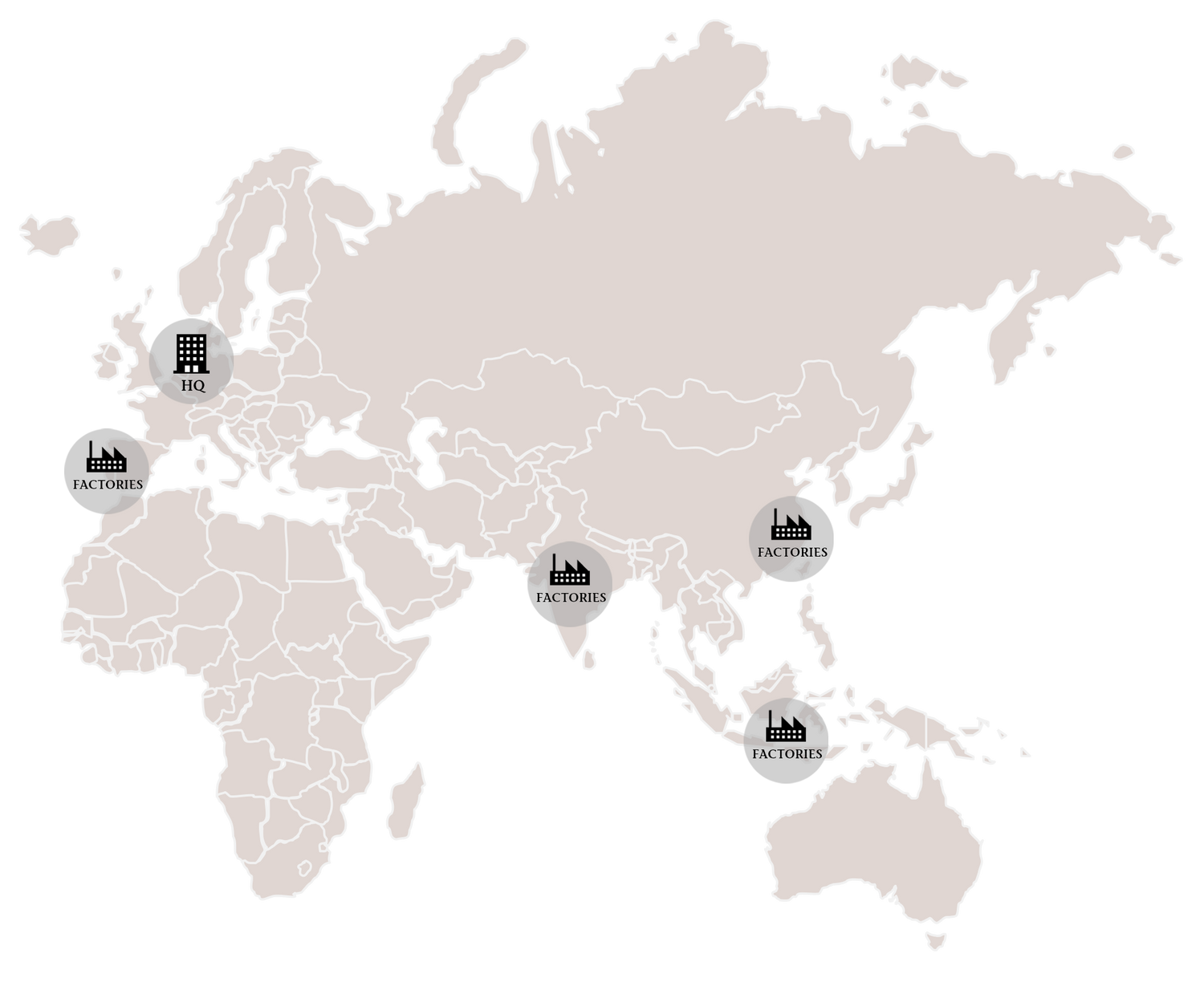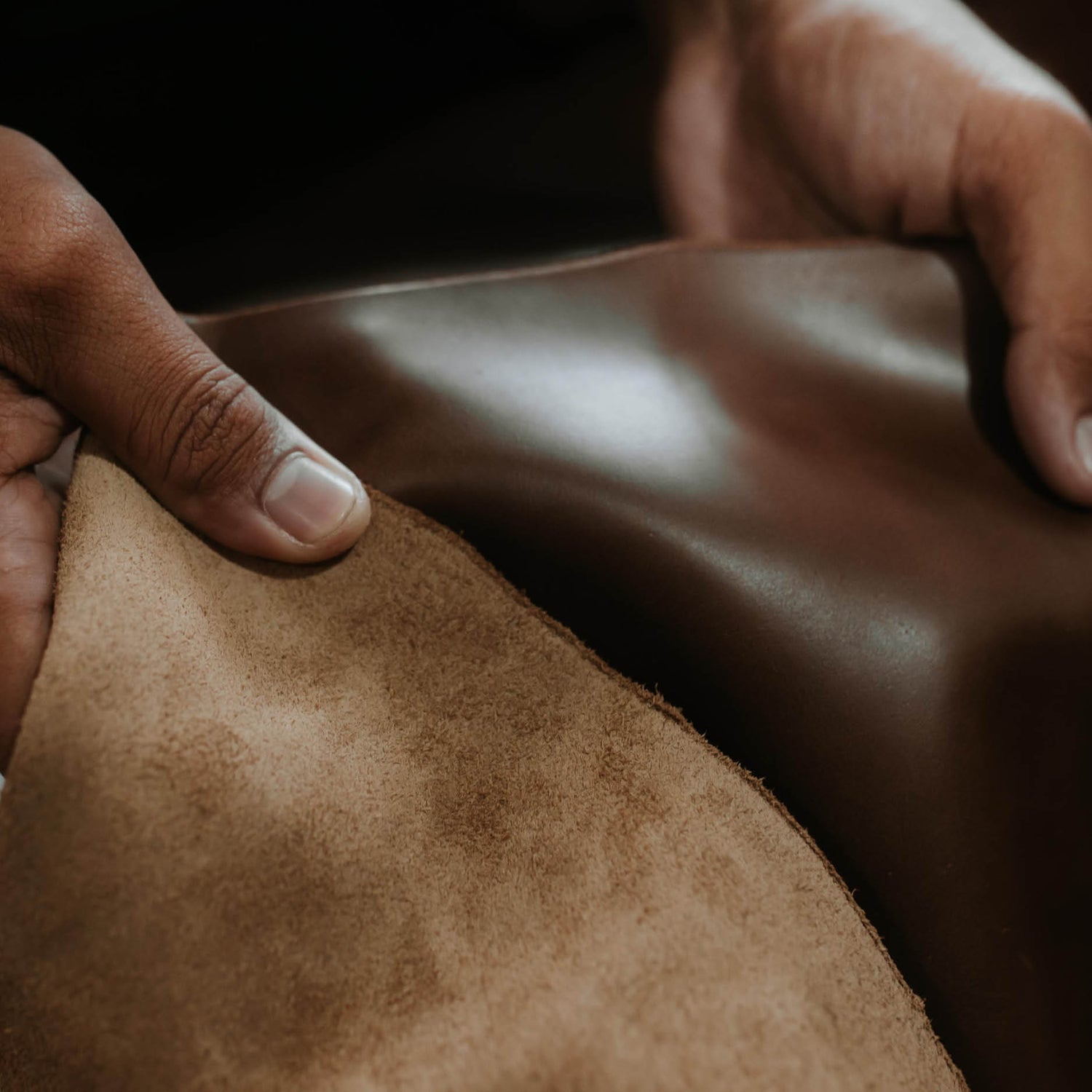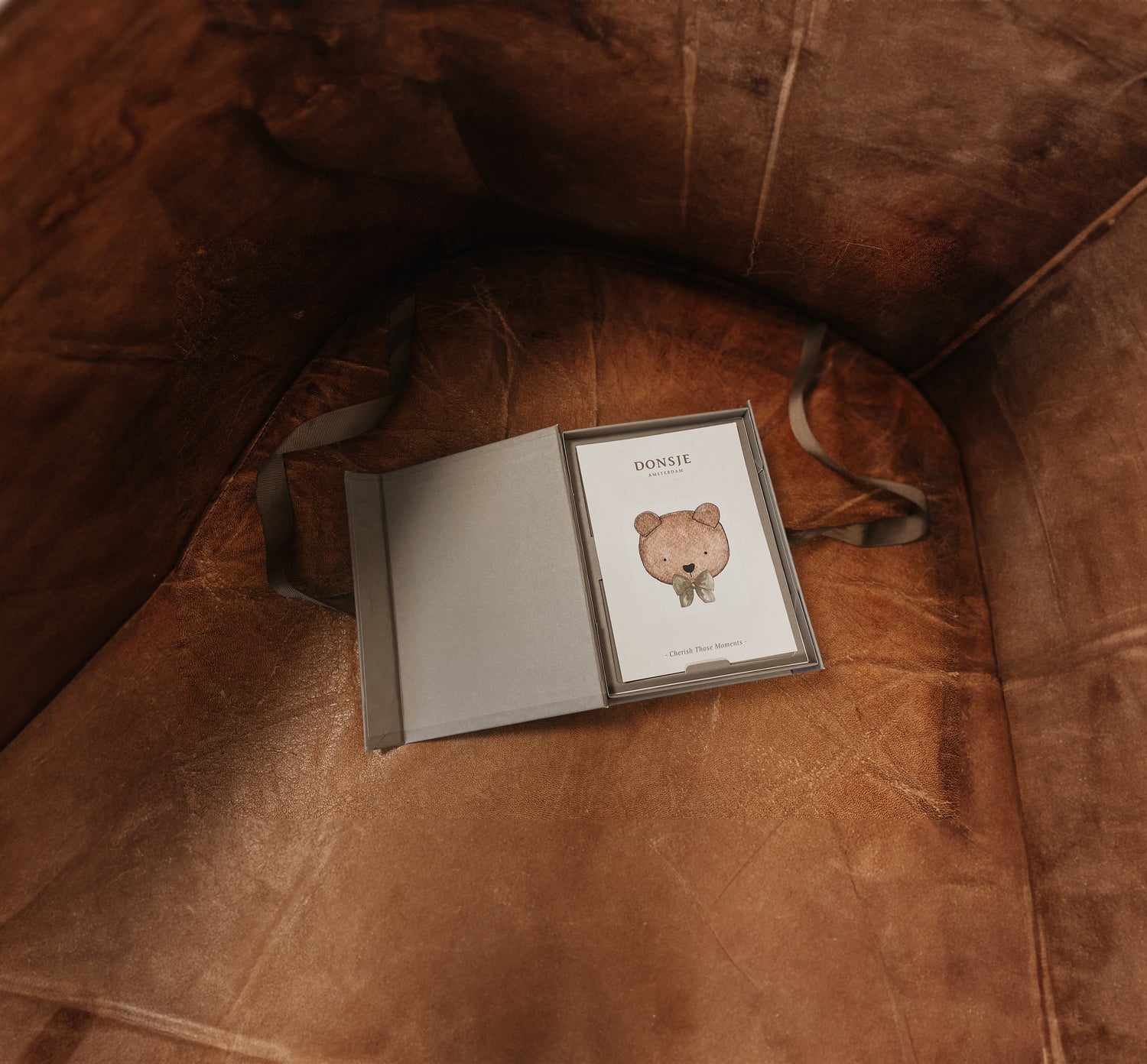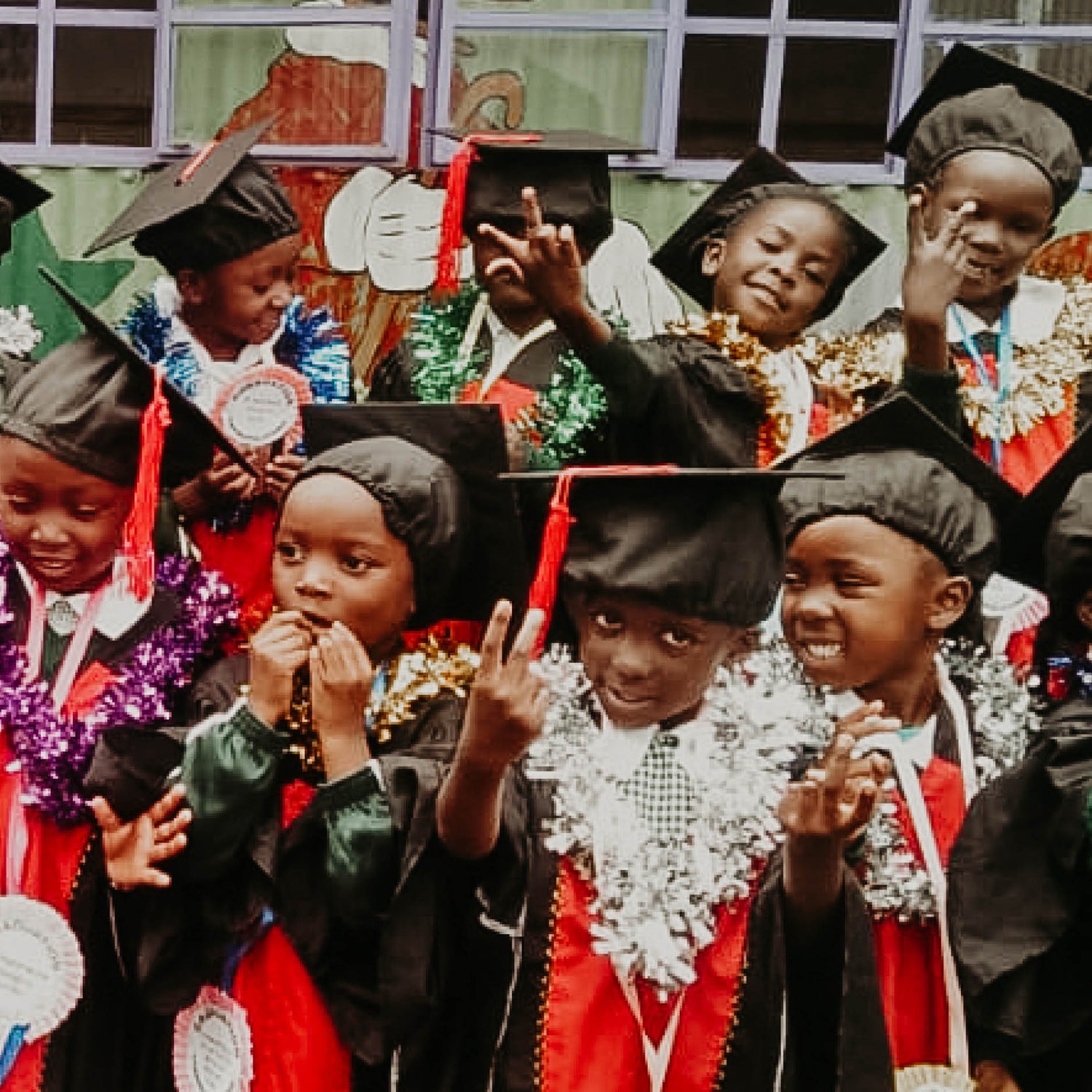We created Donsje as a childrenswear brand to spark imagination, bring joy and cherish life’s bright and beautiful moments.
Throughout our entire process we pay special attention to your little ones’ safety, to building and maintaining relationships with our trusted partners and to the effect we have on our world.
Over the years we have developed our Sustainability Program based on four important pillars: Fair Trade Approach, Sustainable & Safe Materials, Environmental Commitments and Shining Star Foundation. These pillars guide us towards achieving our ambitions regarding sustainability and social responsibility.
We care deeply about our community and uphold a high standard of social and environmental values which influence our daily actions.

fair trade approach
From the very start of Donsje, we strongly value the relationship with our factories, which is based on open communication, mutual trust and close collaboration. We work with dedicated factories that employ local artisans, who work in a safe and positive atmosphere.
Together with our factories, we set, realize and audit goals to improve the sustainability and social responsibility of our production and supply chain.
At Donsje, our fair trade approach is based on a set of clear principles that we have outlined in the Donsje Code of Conduct. All factories that we work with are required to follow the values that we have outlined in this Code of Conduct. On a regular basis we arrange that external auditors, such as The Reassurance Network and Sustainable Leather Foundation, visit the factories to evaluate whether the principles of our Code of Conduct are being followed. After each visit the results are evaluated in good collaboration with the factories, and if required, improvement plans are set up.
Transparency
We're dedicated to creating a supply chain that's both transparent and built on long-term relationships. Our goal is to collaborate with our partners in a way that's environmentally and socially responsible.
We're committed to thoroughly understanding our supply chain. This not only strengthens our relationships with our suppliers but also enables us to work together to identify and address any challenges or improvements needed.
Currently, we've successfully mapped all of our tier 1 suppliers, who are located in Portugal, Indonesia, China and India. In addition, we’re in the process of mapping our tier 2 suppliers. As we work towards making our supply chains more transparent, we're encountering the challenge of achieving full transparency across the entire chain. Even though it's a complex task, we're collaborating with our tier 1 partners to collectively work towards extending transparency to tier 2, 3, and 4 suppliers.
Code of Conduct
The Donsje Code of Conduct lays out what Donsje expects in terms of how our products should be manufactured. It sets the minimum standards for social and environmental practices that we want our own operations, factories, and suppliers to follow. The purpose of the Code of Conduct is to clearly state what we expect from our factories and suppliers and what they can expect from us at Donsje. It's all about making our supply chain more transparent, ensuring safe working conditions, and reducing our impact on the environment.
Donsje acknowledges that her buying practices and operations impact the supply chain and is committed to reducing any potential negative social or environmental impact as much as possible. We believe that products should be made with respect for people and planet. To us, sustainability and social responsibility is about continuously improving our products, production processes and supplier relationships.
Donsje is therefore conducting thorough assessments using the OECD (Organization for Economic Co-operation and Development) guidelines. This helps us identify areas in our supply chain that can be improved and are under our control, whether directly or indirectly. We work closely with our factories and suppliers to regularly examine our Code of Conduct. This process helps pinpoint areas where we can enhance our production processes and purchasing practices, and we adjust our policies accordingly.
This Code of Conduct is based on the conventions and recommendations set by the International Labour Organization (ILO) and the UN Guiding Principles on Business and Human Rights. Donsje encourages all factories and suppliers to improve their fair and safe labour and environmental practices continuously. This Code of Conduct will also be improved regularly. Moreover, Donsje encourages all employees, factories and suppliers to propose improved standards.
The Code Of Conduct has been signed by all our factories and is available in multiple languages.
Factory Visit Program
Our Factory Visit Program is designed to support our partners in complying with the Donsje Code of Conduct , which is a document that sets the social and environmental standards we expect our factories and suppliers to meet.
We focus on providing tailor-made guidance to partners who need support in compliance with our Code of Conduct and in making their processes more sustainable. This requires the correct sector-specific knowledge and know-how, We therefore work with the following trusted partners: The Reassurance Network (China) and Sustainable Leather Foundation (Indonesia). These partners visit our factories on a yearly basis to assess compliance with our Code of Conduct, define improvement areas, and develop corrective action plans, after which we follow up with our factories to support them in what they need to improve.
This program offers us the opportunity to learn about our factories’ operations, and vice versa. Moreover, to create a transparent dialogue with them to support them in their social responsibility and sustainable development.

Sustainability & safe products
We carefully handpick our leather and fabrics for their durability and natural touch, only using the finest selection available. It is our priority to create breath-taking, timeless products that comply with the strictest worldwide applicable norms regarding product safety.
Our commitment extends to managing chemicals in accordance with strict guidelines through our Restricted Substances List (RSL), which is a reference for our suppliers regarding all chemicals that are banned or restricted in our production processes and finished products.
The use of sustainable and safe materials is one of our core pillars within the sustainability program. We are constantly sourcing fabrics that reflect our passion for sustainability and quality, choosing fabrics that have a reduced negative impact on people and the environment, such as certified organic cotton. Following these efforts, in 2024, 49% of the styles produced for Donsje’s clothing collections were considered more sustainable* by Donsje.
We are working closely with our factories and fabric suppliers to further increase the share of certified materials in our collections, including raising the share of organic and recycled fabrics. To reach this goal, Donsje became a GOTS certified company in 2022. Global Organic Textile Standard (GOTS) is the leading worldwide standard for organic and responsibly produced textile goods.
You can find our complete certified product offering here.
Fabrics
The type of fabrics that we use most are:
Cotton: Cotton is a natural material extracted from the cotton plant. It is renowned for its softness, breathability, excellent moisture absorption, quick drying, strength, and comfort. These qualities make cotton our most used material for a lot of the Donsje garments. At Donsje, we embrace the call for responsibility. The difference between sustainable cotton and conventional cotton is clear: a smaller ecological footprint and a commitment to a more responsible textile industry. We pay attention to certifications like GOTS to produce more sustainable cotton garments.
Linen: Linen, the natural material extracted from the flax plant, is often used in Donsje garments. Linen is renowned for its breathability, light texture and excellent moisture absorption which makes it a perfect material to use for our child and baby garments. Linen is also known for its strength and durability. This means that linen products are a long-lasting investment. Linen is also a fiber with a lower ecological footprint, primarily due to its minimal land and water usage.
(Merino) wool: We love to use Merino wool in our garments. This natural fiber provides ultimate comfort year-round, thanks to its moisture-wicking properties. It ensures the wearer remains comfortable regardless of the season. Additionally, Merino wool also has antibacterial properties. Wool is a material that can last generations. Woolen fibers are strong and resilient, making wool products cherished for a long time and rarely needing replacement. Furthermore, wool is biodegradable, which means wool can naturally return to the earth after use without leaving harmful residues.
Faux fur: We often use faux fur in our designs. This cruelty-free alternative delivers the luxurious feel and warmth of real fur without compromising our commitment to animal welfare. It's a cozy, stylish choice that aligns perfectly with our values of compassion and fashion. While faux fur offers animal welfare benefits, it's important to note that it still faces sustainability challenges. The production of synthetic fibers requires energy and has an environmental impact. We are therefore focusing on sourcing recycled alternatives to conventional faux fur.
Polyester: Polyester is another material we use in crafting our children's clothing. Polyester is known for its durability, which is essential for active children who love to play and explore. It's resistant to wrinkles and maintains its shape even after multiple washes. Additionally, polyester dries quickly, making it a practical choice. However, polyester still faces sustainability challenges. We are therefore focusing on sourcing recycled alternatives to conventional polyester.
In 2022, 24% of the styles produced for Donsje’s clothing collections were considered more sustainable* by Donsje.
In 2023, 37% of the styles produced for Donsje’s clothing collections were considered more sustainable* by Donsje.
In 2024, 49% of the styles produced for Donsje’s clothing collections were considered more sustainable* by Donsje.
We aim to increase the percentage of more sustainable styles to a minimum of 55% in 2025.
* At Donsje Amsterdam, a style is considered more sustainablewhen at least 80% of its total raw material weight receives a "best or better" rating in the Donsje Material List
GOTS Certification
Cotton accounts for the greatest part of the materials that we use for our clothing collections. This is why we have focused our efforts on increasing the share of certified organic cotton. Therefore, Donsje is certified against the Global Organic Textile Standard.
Global Organic Textile Standard (GOTS) is the leading worldwide standard for organic and responsibly produced textile goods. For a product to be GOTS certified, each actor in its value chain – including the spinning mill, fabric mill, garment manufacturer and brand - must pass an annual inspection by an independent certification organisation.
The GOTS standard requires each actor to comply with social criteria that are based on international labour norms, and environmental criteria that relate to the processing, manufacturing, packaging, labelling, trading and distribution of the organic textile product.
Donsje’s GOTS scope certificate number is CU1146863.
You can find our complete GOTS certified product offering here
Leather
Our brand's journey began with the creation of beautifully handcrafted leather baby shoes. It all started with our very first Donsje product, the Pina Classing Lining shoes. We take great care in selecting leather for its natural feel and durability, using it to design exclusive and playful items for little ones. This makes leather a cherished part of Donsje's story, reflecting our high-end craftsmanship.
We take great pride in incorporating leather into our designs. This enduring material offers timeless style and remarkable durability, making it a versatile choice for our creations. Its natural patina enhances its charm over time, creating unique pieces that age gracefully alongside their wearers.
Leather accounts for the greatest part of the materials that we use for our footwear and accessory collections. This is why we have focused our efforts on supporting our leather supply chain to make sustainability improvements.
In 2022, Donsje became a member of the Sustainable Leather Foundation (SLF), a not-for-profit organization that is on a mission to support the global leather value chain in improving their sustainability performance. In collaboration with SLF, we conduct a comprehensive assessment of Donsje's leather supply chain in Indonesia, evaluating its performance across the three pillars of sustainability: Environmental, Social, and Governance.
SLF offers tailored support, including audit and certification services, to both large-scale and smaller-scale leather tanneries and product manufacturers. Their expertise helps identify areas for improvement and develop effective plans for enhancement.
Product safety
We embrace global mandatory safety standards and regulations by applying a thorough safety and quality policy. We let renowned independent laboratory partners test our materials for chemical and mechanical product safety each season. Our commitment extends to managing chemicals in accordance with strict guidelines through our Restricted Substances List (RSL), which is a reference for our suppliers regarding all chemicals that are banned or restricted in our production processes and finished products. The purpose of the RSL is to help reduce the use of hazardous substances in our supply chain. It is our priority to ensure that all chemicals and other substances (dyes, finishes etc) used in the manufacture of our products are approved and quantities fall within the maximum allowable concentration limits stated in our RSL.
Durability
Within our creative process, sustainability goes beyond materials. We aim to make high-quality, timeless products, that can be passed along from generation to generation. To prolong the quality of our products, we have set up a set of essential product care guidelines. Here you will find detailed instructions on how to cherish and maintain each item so that you can enjoy it for years to come.

environmental commitments
We are taking steps in reducing Donsje’s environmental footprint by examining and improving our transport methods, and by taking action to package our products responsibly.
We strive to reduce our carbon footprint caused by transporting Donsje products worldwide. In our logistical processes, we are taking steps to ship an increasing volume through rail/sea/road transport, as opposed to air. Air transport is, however, still necessary due to the made-to-order nature of our wholesale operations. So far, we managed to reduce the production volumes shipped by air freight from production sites to our warehouses from 100% (2020) to 68% (2022).
We are also increasingly using certified paper and recycled plastic for the packaging of our products.
Transport
We strive to reduce our carbon footprint caused by transporting Donsje products worldwide. In our logistical processes, we are taking steps to ship an increasing volume through rail/sea/road transport, as opposed to air. Air transport is, however, still necessary due to the made-to-order nature of our wholesale operations.
Our made-to-order approach aligns with our sustainability goals by minimizing environmental impact. By producing items only when there's a specific demand, we prevent surplus production, reducing unnecessary resource consumption and waste. While this practice can sometimes necessitate air transport due to shorter lead times, it ultimately contributes to a more efficient and eco-conscious supply chain.
In 2020, 100% of Donsje production volumes were shipped from the production sites to our warehouses by air transport. By 2022, we managed to reduce this number to 68% air – increasing the share of sea transport to 19% and road transport to 13%, by producing closer to home and adjusting our production planning to allow for longer transport lead time.
In addition, we package our products as efficiently as possible to optimize the shipping volumes per product. We are also actively exploring more sustainable alternatives for last mile delivery, such as partnerships with local bicycle couriers and sustainable local carriers, so we continue to work on reducing our environmental impact in the logistics process.
Packaging
We are increasingly using certified paper and recycled plastic for the packaging of our products.
From 2024 onwards, our hangtags, paper packaging, gift wrapping and shopping bags are made of FSC Mix paper (made of a mixture of materials from FSC-certified forests, recycled materials, and/or FSC-controlled wood).
From 2024 onwards, our polybags are made of recycled plastic, and our hangtag cords and woven brand and size labels are made of recycled polyester.
The life cycle of our products and packaging is in line with the requirements of European Extended Producer Responsibility (EPR) policy, meaning that, following European regulations, we take responsibility for the end-of-life phase of our products and packaging. Please find more information about the end-of-life phase of Donsje products and packaging here.

shining star foundation
While living in Nairobi in 2010, Donsje’s founders Florentine Slingeland and Skief Houben were overwhelmed by the poverty and the living conditions that children had to endure in city slums. Florentine was working as a volunteer when she met a local teacher who explained the lack of, and need for, a school in the area. Florentine and Skief were inspired when she shared that it was her dream to set up a school, so they decided to help her make this dream a reality.
In 2012, they officially set up the Shining Star foundation and started giving classes to 25 children in a church. Since then, they have built their own school and Donsje is now supporting over 250 children to take their first steps in education and get a better start in life.
The school is an Early Childhood Development school for children from the ages of 2 to 9 years old.
We donate part of our profits to the Shining Star school. Shining Star is a foundation under Dutch law, registered at the Dutch chamber of commerce and is recognized as a charitable organization with ANBI-status. For more information, please visit www.shiningstar-africa.com


